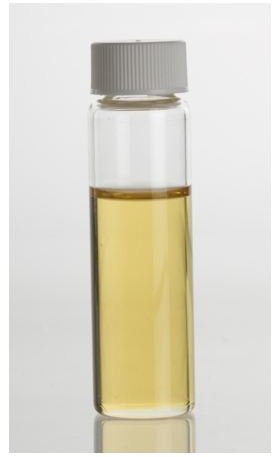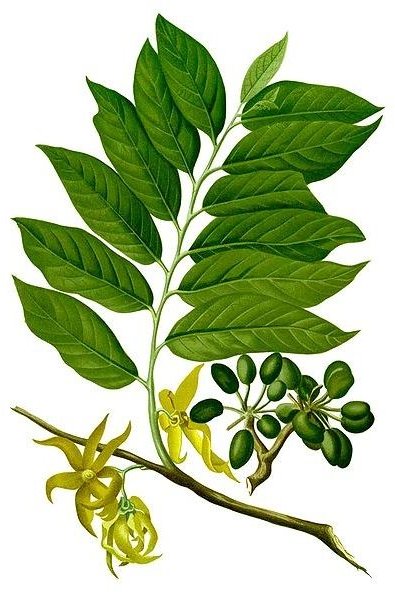Ylang Ylang Benefits: Learn About this Wonderful Essential Oil
Ylang Ylang
Ylang ylang (Cananga odorata), also known as “perfume tree” because of its wonderfully scented blooms, is a large evergreen tree that grows up to 75 feet tall. It is native to northern Australia, the Philippines, Burma, and Malaysia. Ylang ylang means “flower of flowers”. Essential oil is extracted from freshly picked flowers by steam or water distillation. The oil is used in soaps, cosmetics, and perfumes (including high-class perfumes). Treating certain health issues are other ylang ylang benefits.
Health Benefits
Ylang ylang essential oil has many properties, including calmative, aphrodisiac, antidepressant, antiseptic, anti-infectious, antiseborrheic, and hypotensive. It has a calming effect on the nervous system and is used to help treat tension, anxiety, frigidity, and impotence. It is also used to treat insomnia, depression, high blood pressure, palpitations, and premenstrual syndrome (PMS). Skin and hair care uses include treating oily and dry skin, acne, wounds, eczema, insect bites and stings, and hair loss.
Using the Essential Oil

Inhalation: Add 2-3 drops of oil to a bowl of steaming hot water. Lean over the bowl with a towel over your head (to capture the steam) and breathe in the steam. Steam can be very hot so you must take precaution in not burning yourself. Ylang ylang oil can also be added to a nebulizing diffuser or made into a spray by adding 1 teaspoon of oil and 1 ounce of 90% isopropyl alcohol to 7 ounces of distilled water.
Massage: Mix 15-20 drops of essential oil with 1 ounce of carrier oil (such as olive oil, sweet almond oil, grapeseed oil, coconut oil, jojoba oil, or apricot kernel oil).
Bath: Add 4-6 drops of oil with 1 teaspoon of golden jojoba oil and add to hot bath water.
Products: Small amounts can be added to skin and hair products such as creams, lotions, and shampoos.
Other Oils that Blend Well with Ylang Ylang
Ylang ylang essential oil goes particularly well with sandalwood, bergamot, lavender, and grapefruit. Other oils include chamomile, ginger, jasmine, lemon, orange, rose, mandarin, clary sage, and neroli.
Precautions
When getting ylang ylang benefits, precautions should be taken:
Do not take any essential oils internally without consulting a qualified aromatherapy practitioner.
Ylang ylang essential oil is considered a non-irritant and non-toxic oil but there have been reported cases of sensitization. Perform a patch test to check for sensitivity and do not apply to the skin undiluted.
Use in moderation because too much can cause nausea and headaches.
Women who are pregnant should avoid use. Consult with a health care professional before using on children.
Sources Used
Mountain Rose Herbs: Ylang Ylang Extra Essential Oil - https://www.mountainroseherbs.com/learn/eo/ylangylang.html
Esoteric Oils: Ylang-ylang essential oil information - https://www.essentialoils.co.za/essential-oils/ylang-ylang.htm
Ylang Ylang Essential Oil: Health Benefits of Ylang Ylang Oil - https://www.ylangylangoil.com/
Photo Credit
Plant image courtesy of https://commons.wikimedia.org/wiki/File:Cananga_odorata_Blanco1.221-cropped.jpg
Oil image courtesy of https://commons.wikimedia.org/wiki/File:YlangYlangEssentialOil.png
Disclaimer
Please read this disclaimer regarding the information contained within this article.
